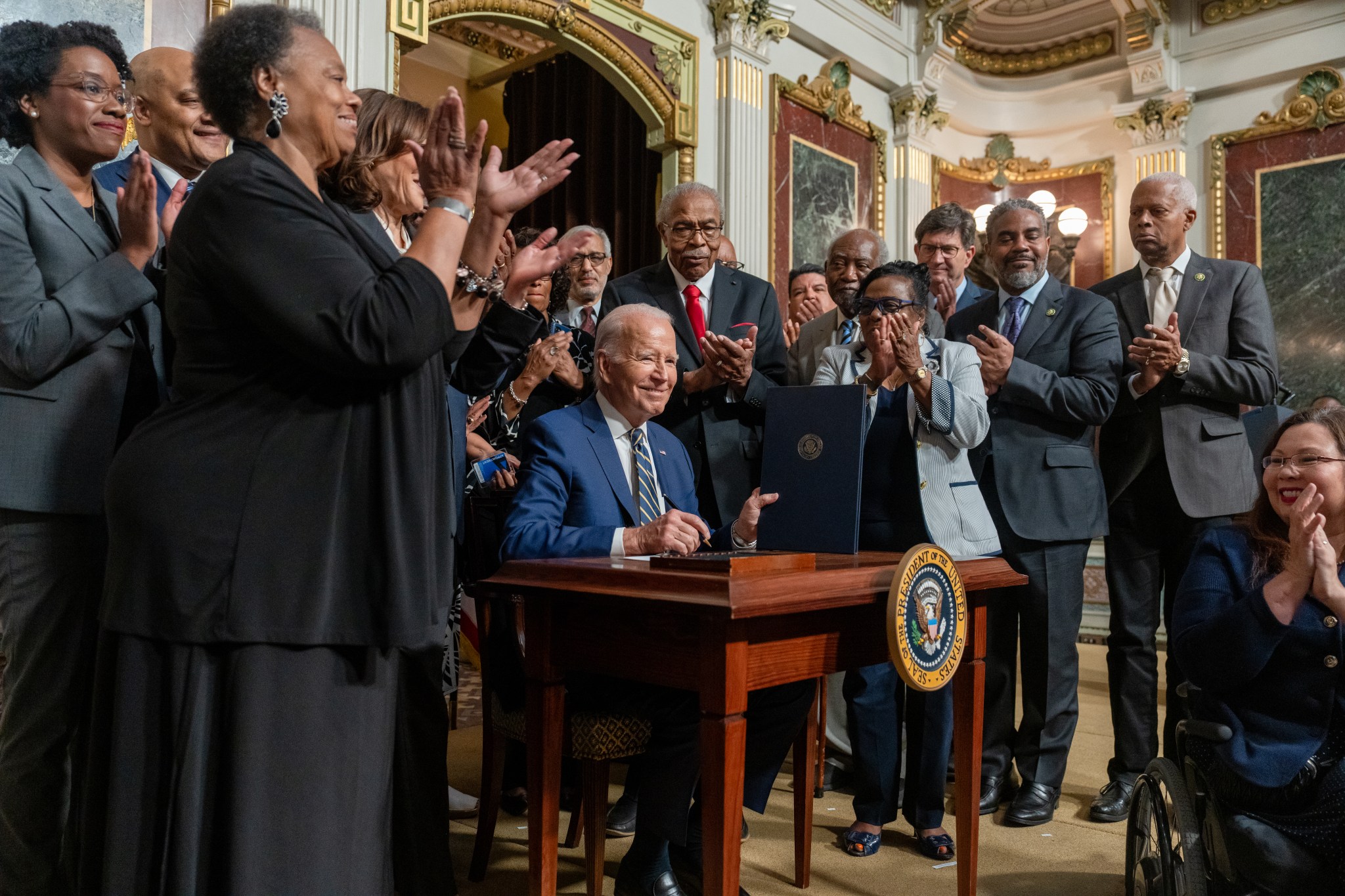Reflections on Black History Month: President Biden Uplifts Black History and Advances Equity Year-round

By Brenda Mallory, Chair of the White House Council on Environmental Quality
Reflecting on Black History Month, there are many opportunities to celebrate the vibrancy of African-American history and culture, from the strength and resilience of those who lived through our darkest days of enslavement and segregation, to the recognition of educators and innovators, to the trailblazers in the arts and athletics who help us express the highs and lows of our experience and find joy in the beauty of our God-given talents.
As the first African-American Chair of the White House Council on Environmental Quality, I am grateful to work for an Administration that under the leadership of President Biden and Vice President Harris, recognizes Black history throughout the year and works to ensure that little known parts of that history are brought to light. At a time when others are editing the history of our country, the President and Vice President are lifting up our full past – including truths about the challenges Black Americans face that have been ignored and obscured for far too long.
Take Emmett Till. After years of tireless work by advocates and family members to have the events of Emmett Till’s brutal abduction and murder told while recognizing the incredible bravery of his mother, Mamie Till-Mobley, last summer – on what would have been Emmett’s 82nd birthday – President Biden designated the Emmett Till and Mamie Till-Mobley National Monument.
Mamie Till-Mobley’s insistence on an open casket at her son’s funeral forced the nation to witness the barbaric result of bigotry, even in the midst of her own deep mourning. By recognizing sites that helped catalyze the Civil Rights Movement, President Biden is helping our national park system tell a more complete story of our nation’s history while encouraging education and healing.
I recently visited another important site for Black history, the Martin Luther King, Jr. National Historical Park in Atlanta, which includes Dr. King’s birth home and other meaningful sites from his life. It was a profound experience to hear the stories of those special places and to step where Civil Rights giants once lived, walked, and made their impact on our country. While I was there, I saw public and private investments being put to work to restore those sites so we can continue to learn from them.
The Biden-Harris Administration has demonstrated time and again that Black history matters by investing in historic sites. At the New Philadelphia National Historic Site, students can learn about the first U.S. town platted and registered by an African American. In Chicago, everyone can learn about how Black railway workers advanced the labor movement by achieving higher salaries and worker protections at the Pullman National Historic Park. In fact, since President Biden took office in 2021, the Department of the Interior has invested more than $295 million in infrastructure funding and historic preservation grants to protect and restore places significant to Black history.
As I think about these sites, I reflect on my own story as an African-American woman whose family migrated north from Georgia and Virginia looking for better lives – and their sacrifices to make the life I live today possible. I am grateful to be part of an Administration that has appointed historic numbers of African Americans and know that we serve as inspiration to young people who want to see themselves reflected both in past history and in the history being made today.
As we recognize Black history, we are also working to change the path ahead. Our Administration understands how historic injustices continue to impact generations today, and President Biden’s ambitious conservation and environmental justice agendas focus on equal access to the benefits of nature, leveling the playing field for funding opportunities that ensure communities have cleaner air and better health, and expanding job opportunities for those who have been left behind for too long. Many of these programs are working to advance the President’s Justice40 Initiative, which sets a goal to deliver 40 percent of the overall benefits of certain federal investments to disadvantaged communities.
While some extremists seek to ignore or try to erase events in our past, President Biden and Vice President Harris are lifting up our history while helping build a just and equitable future for everyone. As Maya Angelou wisely said: “History, despite its wrenching pain, cannot be unlived, but if faced with courage, need not be lived again.”

